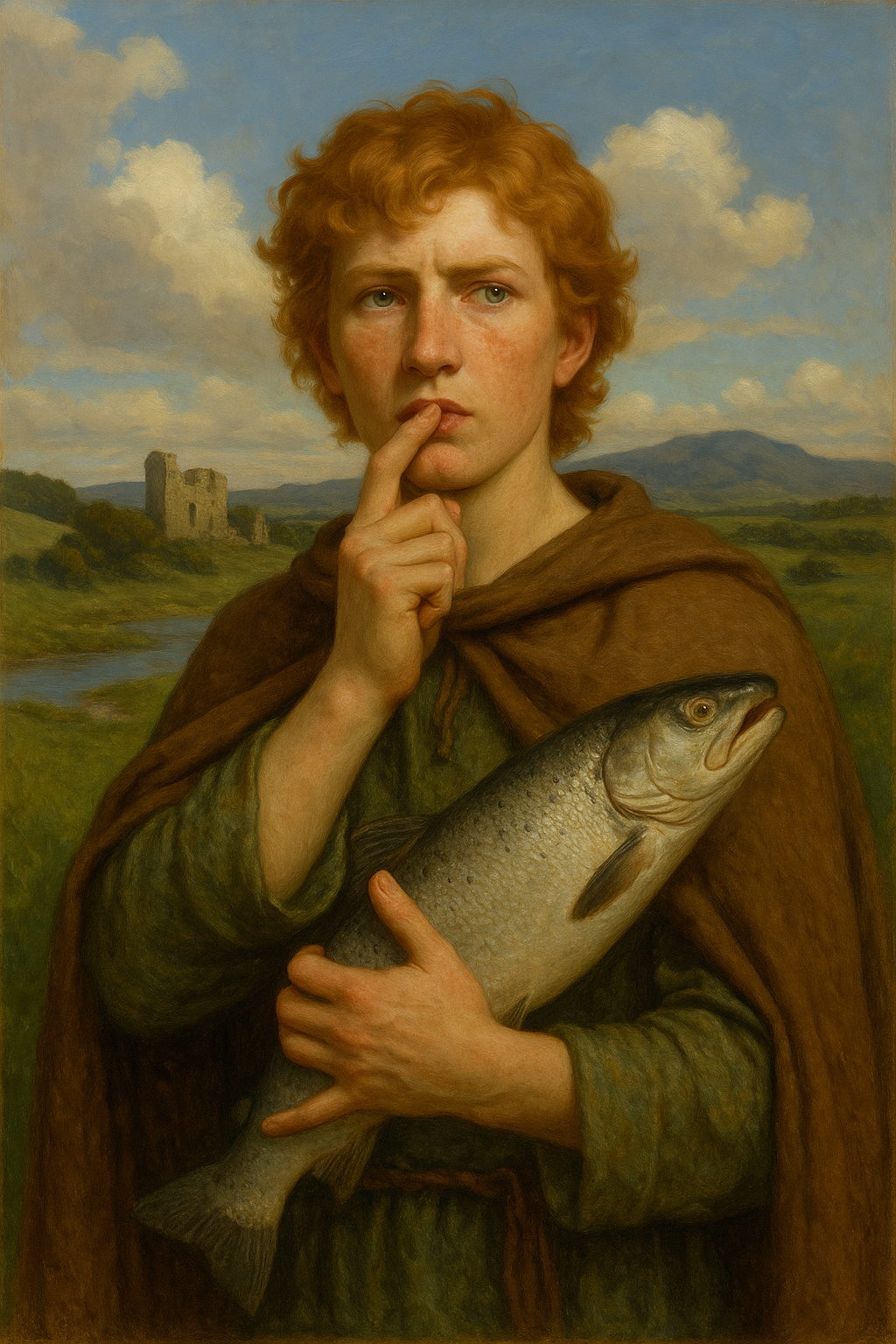August 15, 2025

Long before priests came with books in their hands and Latin on their tongues, Ireland told its own tale of the first bite of knowledge. It didn’t happen in some far-off garden, but on the banks of the River Boyne, where the air carried the smell of turf smoke and salt wind.
In the Hebrew story, temptation hangs from the branches of the Tree of the Knowledge of Good and Evil, guarded by the voice of God and the shadow of death. In ours, wisdom swims in deep water — the Salmon of Knowledge — feeding on the hazelnuts that drop into the sacred well. In Eden, a serpent whispers; on the Boyne, there is only the faint hiss of fish fat over a fire.
Adam and Eve are told, “Do not eat,” and when they do, the world tilts, and toil and exile spill in to fill the gap. Fionn mac Cumhaill is told, “Do not taste,” and yet he does — not in defiance, but in accident, touching his burned thumb to his mouth. In an instant, the world changes. One story warns of a line crossed; the other celebrates it.
And yet, they are close relatives. In both, one bite alters the course of everything. The eater becomes something else — aware, awake, no longer able to return to the old way of seeing. The taste is both a wound and a gift. Adam and Eve see their nakedness; Fionn sees the hidden patterns of the world.
Maybe that’s the Irish slant on it: where the Bible speaks of a fall from grace, the old stories speak of stepping into what was always waiting for you. We kept the truth that knowledge has its price, but we dressed it in our own colors — hazelnuts instead of figs, a poet instead of a serpent, a riverbank instead of a garden, and a calling instead of a curse.
And so the boy with the burned thumb becomes our Adam — not driven out of paradise, but sent down the road to lead his people.